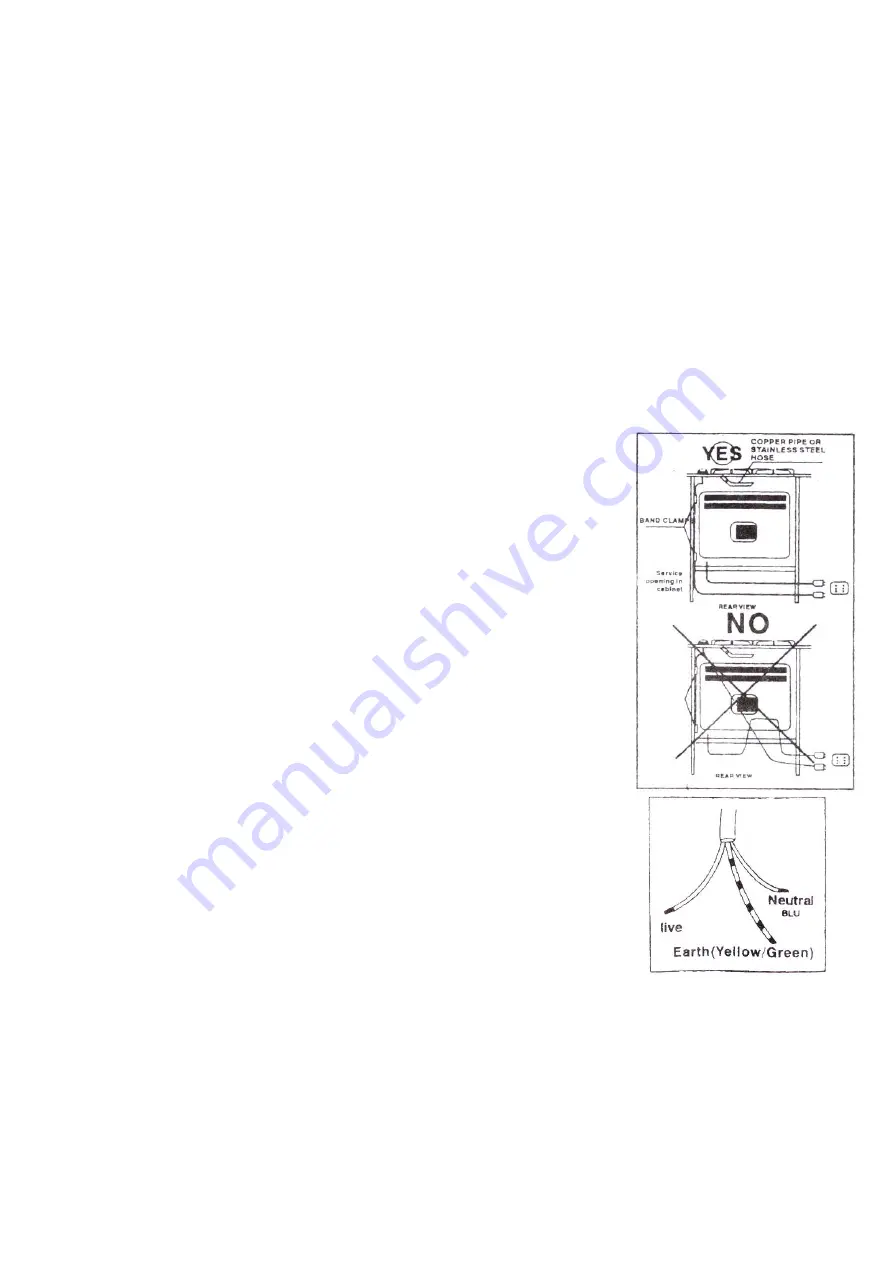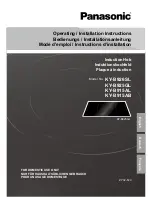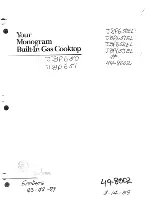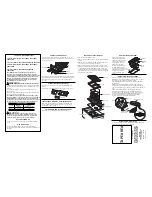
11
Electrical connection
The appliance is designed to operate with a power supply voltage of 220-240 V single-phase. The
connection must be made in accordance with the regulations and laws in force.
Before making the connection, make sure that:
1)
The safety circuit-breaker and the electrical system are able to withstand the load of the
appliance (see nameplate).
2)
The power supply system has an earth connection in good working order in accordance with the
regulations in force;
3)
The socket and switch used are easily accessible with the appliance installed.
Fit a plug suitable for the load on the power lead and connect it to a suitable safety socket.
If you wish to make a direct connection to the mains, an omnipolar switch
must be installed between the appliance and the mains: with at least
3mm between the contacts of suitable rating for the load while complying
with the regulations in force. The switch must not break contact in the
yellow/green earth wire. The brown live wire (connected to the “L”
terminal of the terminal board) must always be connected to the live wire
of the power supply mains.
In all cases, the power supply lead must be positioned so that it does not
reach a temperature of 50
o
C above the room temperature at any point.
One example of an ideal route is shown in the illustration. The cable is
guided by means of band clamps fixed to the side of the cabinet, in order
to avoid any contact with the appliance underneath the hob.
Replacing the power supply lead
If the lead has to be replaced, only HO5RR-F or HO5RN-F type cables
suitable for the load and the operating temperature must be used. In
addition, the yellow/green earth wire must be about 20mm longer than
the live and neutral wires.



































